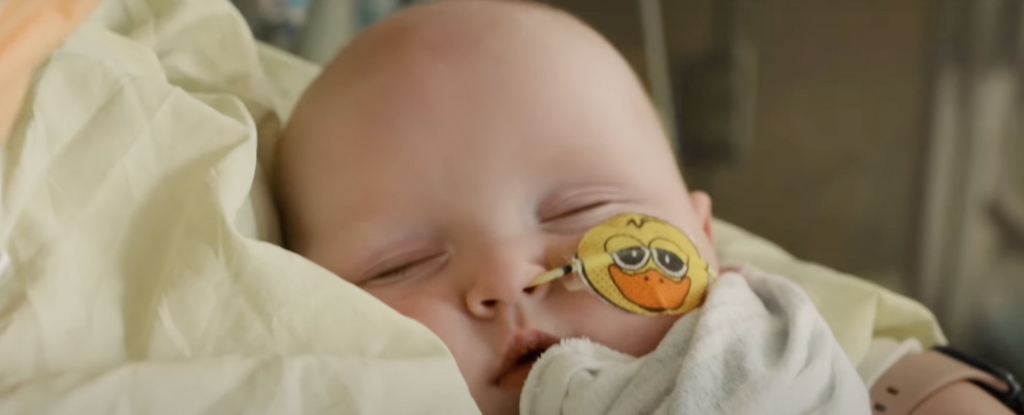A US infant has become the first patient to be treated with a personalized gene-editing technique, offering hope for others with rare diseases, doctors announced. The baby, KJ Muldoon, was diagnosed with CPS1 deficiency shortly after birth, a condition caused by a mutation in a gene critical for liver function. This mutation prevents the body from eliminating certain metabolic toxins.
The baby’s parents faced a difficult decision: a liver transplant or an experimental treatment using CRISPR-Cas9, a Nobel Prize-winning gene-editing tool. They opted for the personalized treatment designed specifically for KJ’s genetic mutation. The treatment involves molecular scissors that penetrate liver cells to correct the flawed gene.
The results, published in the New England Journal of Medicine, are promising for others with genetic conditions. KJ can now follow a richer protein diet and requires less medication. However, long-term follow-ups are necessary to ensure the treatment’s safety and efficacy. Doctors hope this breakthrough will pave the way for more personalized genetic therapies.
— new from ScienceAlert
